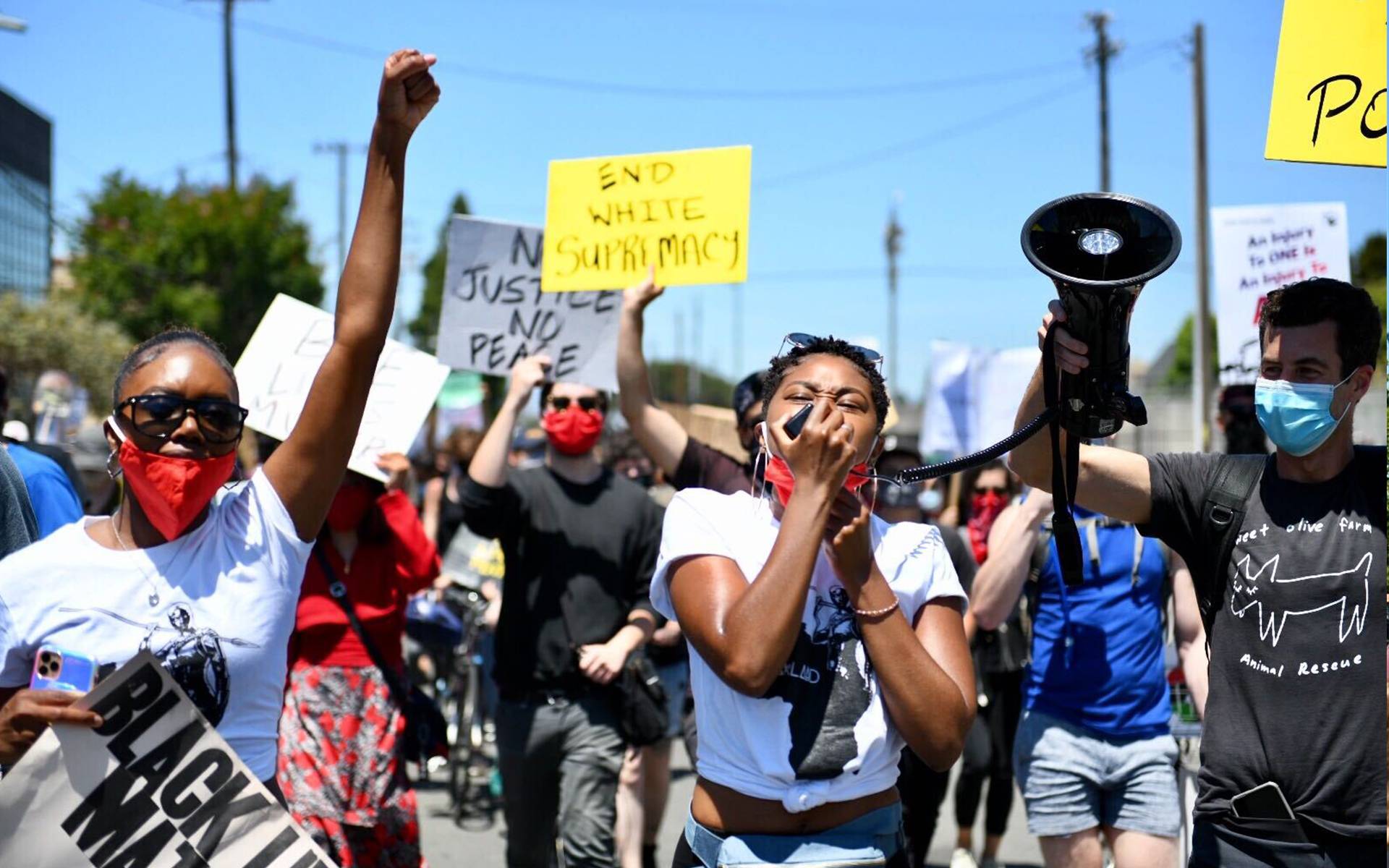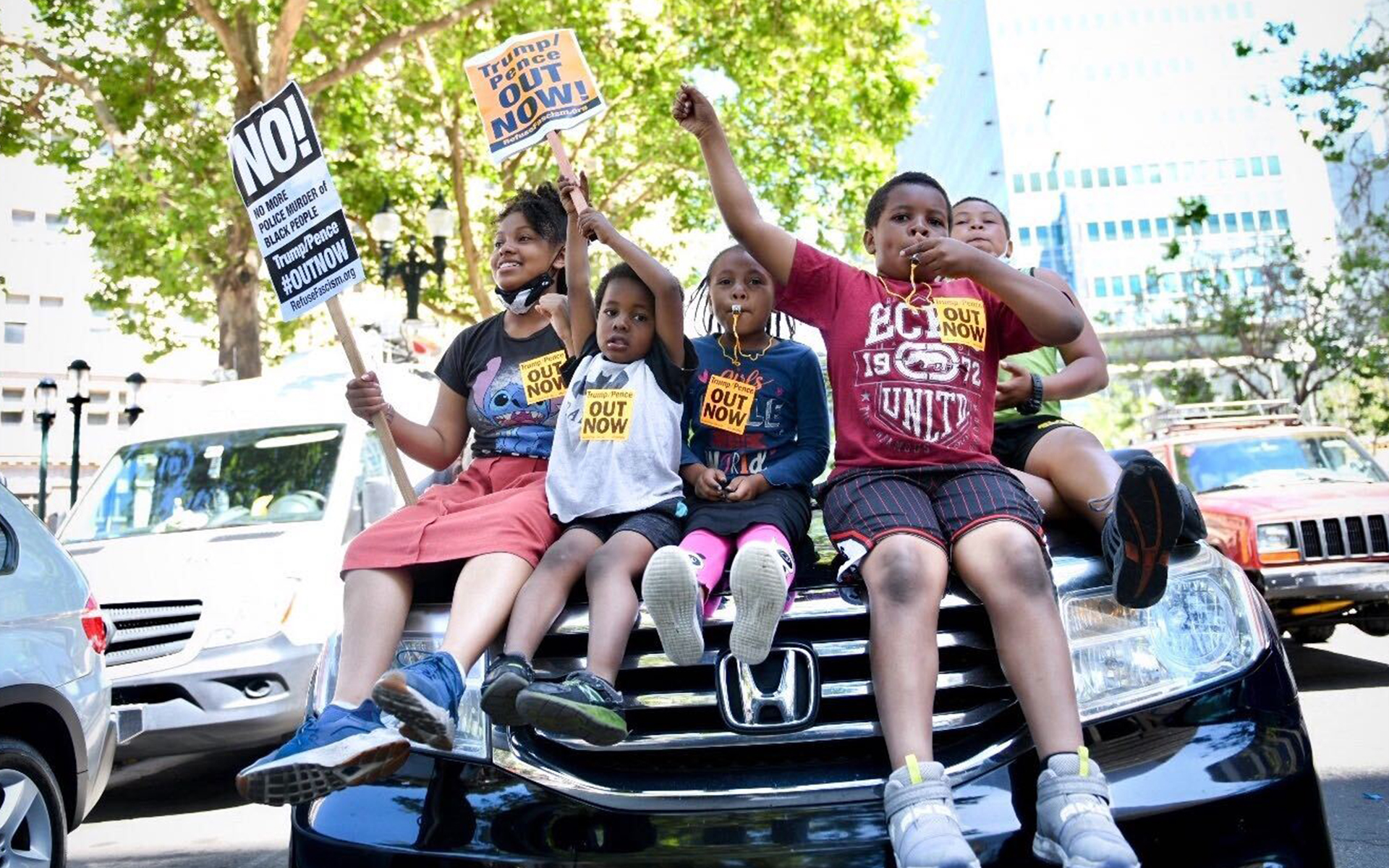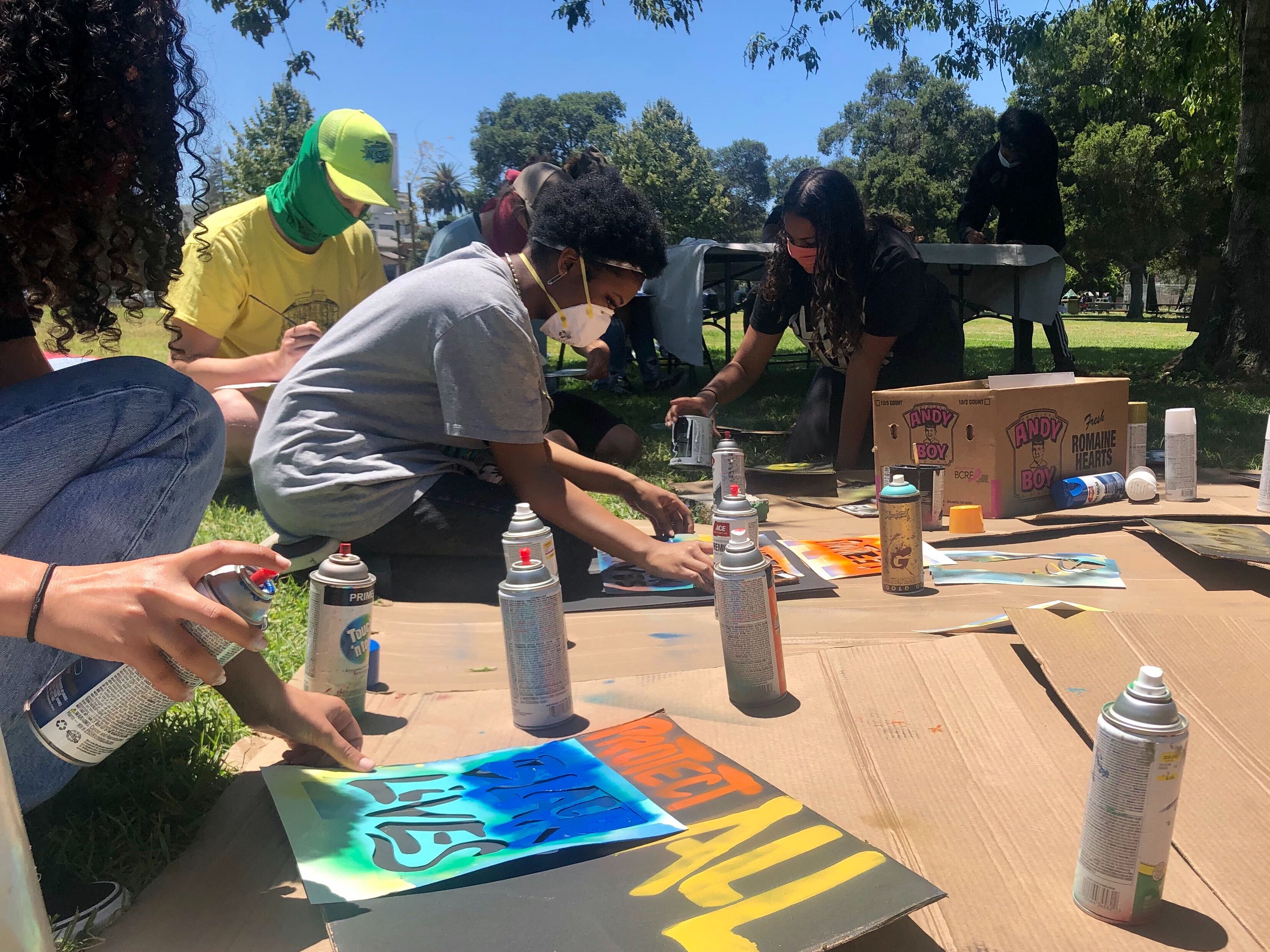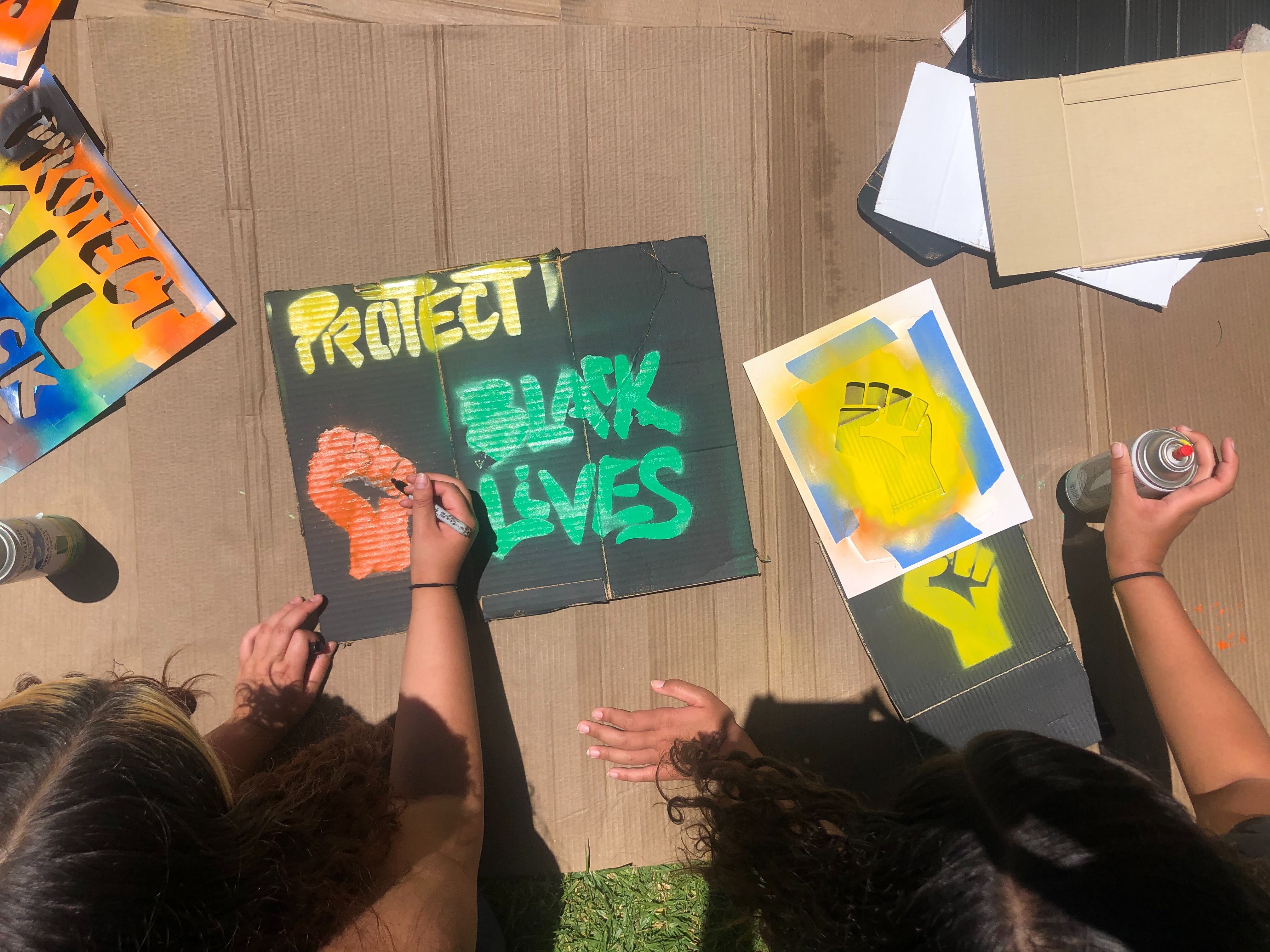Are you joining a protest or march to mark Juneteenth this weekend? Read our guide to protesting safely during a pandemic first, and read more on the meaning and history of Juneteenth here.
This post contains strong language
Thousands of people filled the streets of Oakland on Friday, June 19 to honor Juneteenth and stand in solidarity with a huge shutdown of the Port of Oakland.
The International Longshore and Warehouse Union (ILWU) enacted the planned work stoppage at the Port of Oakland — along with the shutdown of all ports along the West Coast — to honor Juneteenth: the date when enslaved people in Texas learned that they were free in 1865, more than two years after slavery officially ended in the United States.
Protesters gathered at the port this morning to hear from Angela Davis and the relatives of Black people killed by police. Marchers then moved downtown — followed by a mile-long car caravan — to Oakland City Hall, where speakers including Boots Riley spoke with urgency of the need for momentum in the global fight against racism.
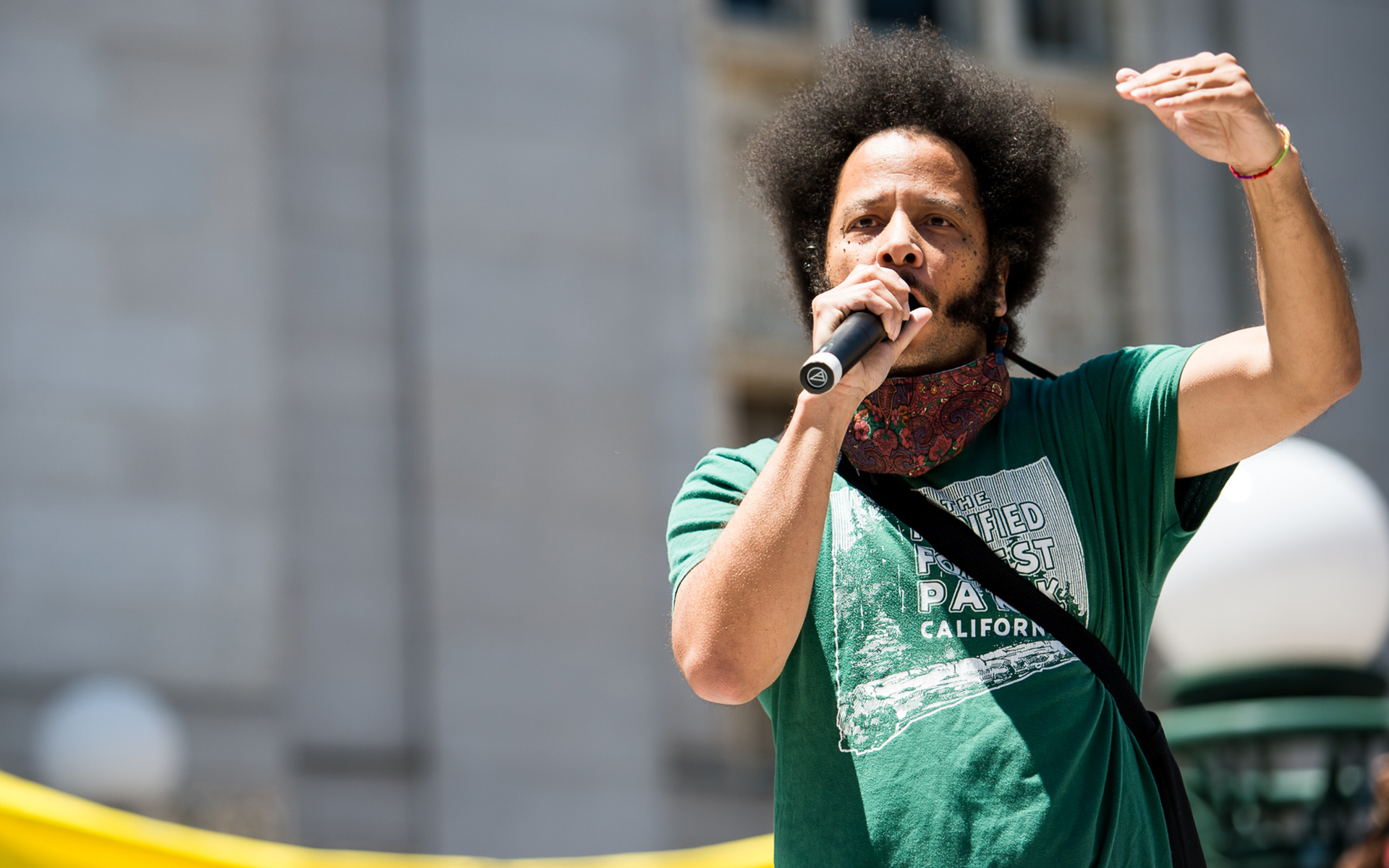
To those asking what the “next step” in the fight for justice was, Riley emphasized the power of labor organizing in that “question of power.” That, he said, was what the Juneteenth port shutdown was “answering”: “Because our power comes from the fact that we create the wealth. Wealth is power, we have the ability to withhold that power. We have the ability to withhold on labor, and shut shit down.”
“We don't want to just ask for things to get better. We wanna say 'it's going to get better or else,’” he said.
Companies, Riley said, were “scared” of the threat of work stoppages. “Wherever you work, wherever you are during the day, that's where you need to be organizing — because we need to be able to shut this down. We need to show them we ain't asking, we're telling. And that we'll stop the world and make them motherfuckers jump off.”

Friday's protest was peaceful, and an overwhelming majority of attendees wore face coverings to limit the transmission of COVID-19, in accordance with a statewide order by Gov. Gavin Newsom.
The police presence at the event was also minimal. An Oakland Police Department spokesperson said that the ILWU provided their own security and monitored traffic and safety, and that OPD was "there only ... if any type of medical emergency or if someone drove into the crowd.” No incidents were reported.
“Thank you for shutting down the ports today, on Juneteenth ... the day when we renew our commitment to the struggle for freedom,” said civil rights icon, author and academic Angela Davis, one of the speakers that addressed the crowds at the port in the morning.

'This Reaches Back to Me in Heritage'
This Juneteenth work stoppage represents the latest in a long line of protests enacted by ILWU, from anti-apartheid shutdowns to action taken against the Iraq war in 2008.
“With the ILWU’s history of advocating for the end of police terror and violence we decided to put a call out,” said Trent Willis, president of the ILWU Local 10 in San Francisco, when the stoppage was announced.
Several of the port workers attended the Juneteenth rally in person to demonstrate solidarity with the shutdown. As thousands marched downtown, accompanied by music and chants, union members wearing orange vests helped to redirect traffic and handed out water to protesters.
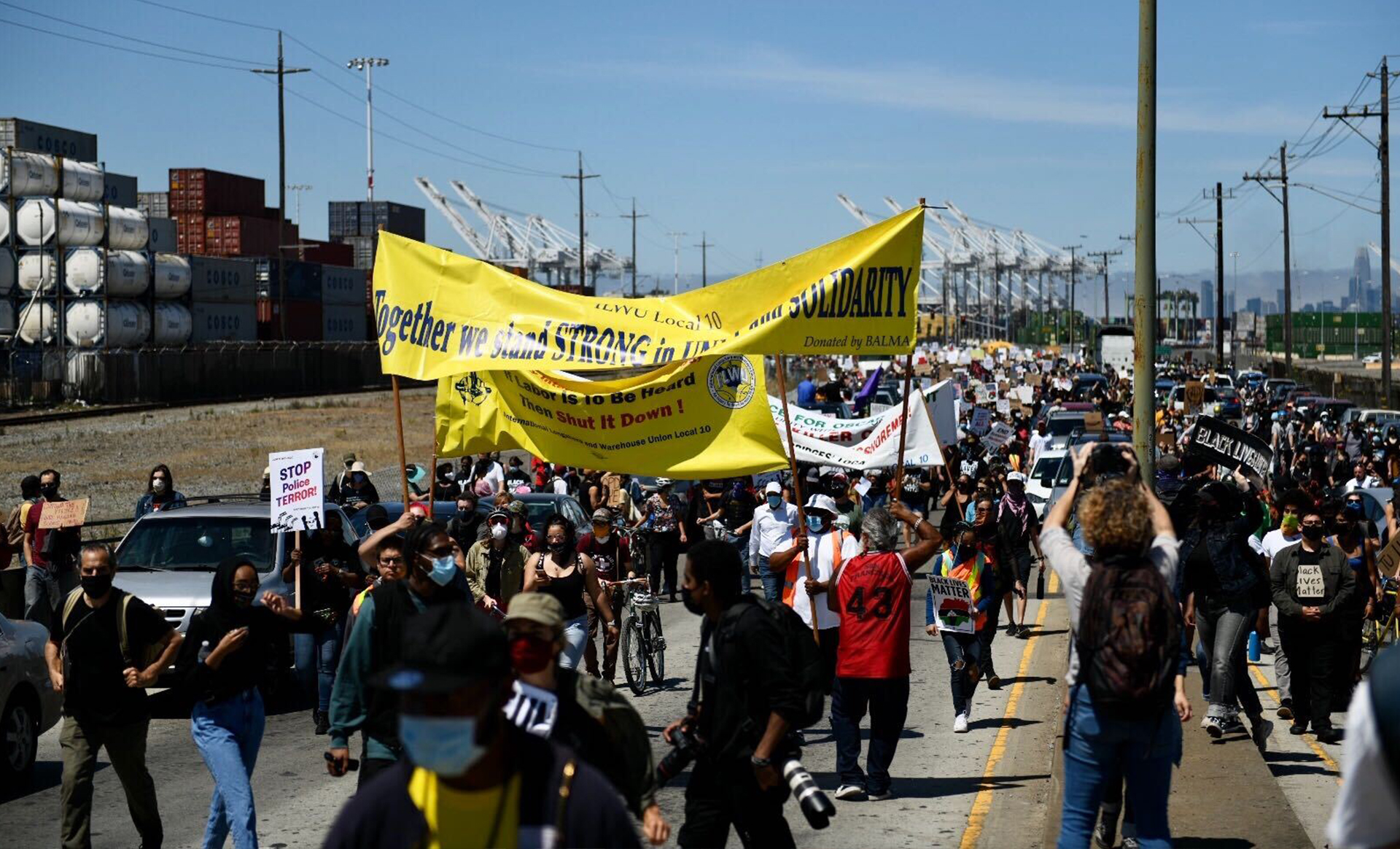
ILWU Local 10 worker Elton Meyers emphasized the importance of direct action from unions to effect change: “When their pockets are hurting, that’s the only way to make them realize what’s going on and how serious the situation is.”
Kim Cotton, a Local 24 marine clerk from Oakland, was one of those union members directing cars on Martin Luther King Jr. Way, and said that she thought the majority of her colleagues had chosen to come to the protest. “We’re all human. Nobody’s no different. We’re taught race, color, hate," she said.
On her own reasons for coming to the protest, Cotton said, “My great-grandmother’s mother was a slave. My great-grandmother worked in the fields. This reaches back to me in heritage, what’s been happening for years."
Cameron Hamilton from Richmond, another ILWU Local 10 member, commented on the energy he saw in the rally, on the vibe: “People seem fierce. People seem energized, but at the same time calm, like they’ve done it before, like it’s second nature.”
The shutdown meant Hamilton and his fellow union members were going without pay for the day, he confirmed — but that choosing to do so was “not a hard decision.” Labor, he said, has "the people power, funds and infrastructure to lead a movement.”
